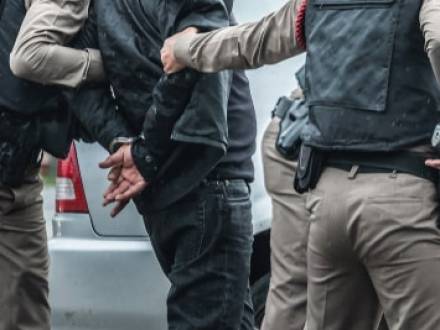“Doug & Chris are top notch. Both are extremely competent, family oriented and deliver results.”-D.P.
Search and Seizures: What to Know in DWI Cases - Part 4
 Police only need reasonable suspicion that you were committing a crime to pull you over. It does not take much evidence to allow a police officer to initiate a traffic stop. However, police must meet a higher standard to search you or your belongings. Illegal searches can violate your Fourth Amendment rights. People often have their vehicles searched during a DWI stop, legally or otherwise. If the police searched your car during a DWI stop and you have been charged with another crime as a result, you need an experienced Houston, TX criminal defense lawyer to fight for you.
Police only need reasonable suspicion that you were committing a crime to pull you over. It does not take much evidence to allow a police officer to initiate a traffic stop. However, police must meet a higher standard to search you or your belongings. Illegal searches can violate your Fourth Amendment rights. People often have their vehicles searched during a DWI stop, legally or otherwise. If the police searched your car during a DWI stop and you have been charged with another crime as a result, you need an experienced Houston, TX criminal defense lawyer to fight for you.
Searches to Ensure Safety
Police officers can search your vehicle without a warrant if they believe it is necessary for their immediate protection. This generally only applies if police can articulate that exigent circumstances existed and a search was necessary to prevent harm.
For example, during a stop, police officers notice that you refuse to keep your hands visible on the steering wheel as they have requested. When an officer notices a shiny black object wedged beneath your seat, he suspects that you have a weapon that you may decide to use. Police could perform a warrantless search of the vehicle to prevent a dangerous situation from unfolding.
Evidence Obtained From Illegal Searches and Seizures
Police are required to satisfy certain levels of proof before they can intrude into your life. To pull you over, the police must have reasonable suspicion that you have broken the law. Before a DWI arrest, police officers must have probable cause that you are intoxicated. Prior to a search, police must get consent, arrest you, or have probable cause. If police do not meet these minimum requirements, they have violated the law. As a result, the state's case against you may be doomed to fail.
The Exclusionary Rule
Evidence obtained in violation of your constitutional rights cannot be used against you in criminal proceedings. This applies to any evidence obtained as a result of an illegal stop, search, or seizure. If the illegal act led police to certain evidence, the evidence must be excluded.
However, the state will not simply admit that your rights have been violated. It will argue that your rights were not violated and that police gathered evidence legally. To get tainted evidence thrown out of your Houston DWI case, you will need the help of an experienced attorney.
Without evidence to support its case, the state can be forced to reconsider any criminal charges it has filed. In some cases, the state may attempt to negotiate a plea. Other times, the state may be forced to drop the charges in their entirety. Our attorneys will fight to negotiate the best possible outcome in your criminal DWI case. If we do not believe the state has sufficient evidence to prove that you've broken the law, we will not hesitate to fight your case in court.
Contact a Harris County, TX Criminal Defense Lawyer
At Murphy & McKinney Law Firm, P.C., our Houston, TX DWI attorneys will always investigate the validity of any traffic stop, arrest, or search. If we determine that police violated your rights in any way, we will not hesitate to file a petition to suppress any evidence that stems from that violation. Your right to be free from unlawful searches and seizures must be protected. If this right has been infringed, we will find proof. Contact us at 713-229-8333 for an initial consultation.




 Office Location
Office Location
